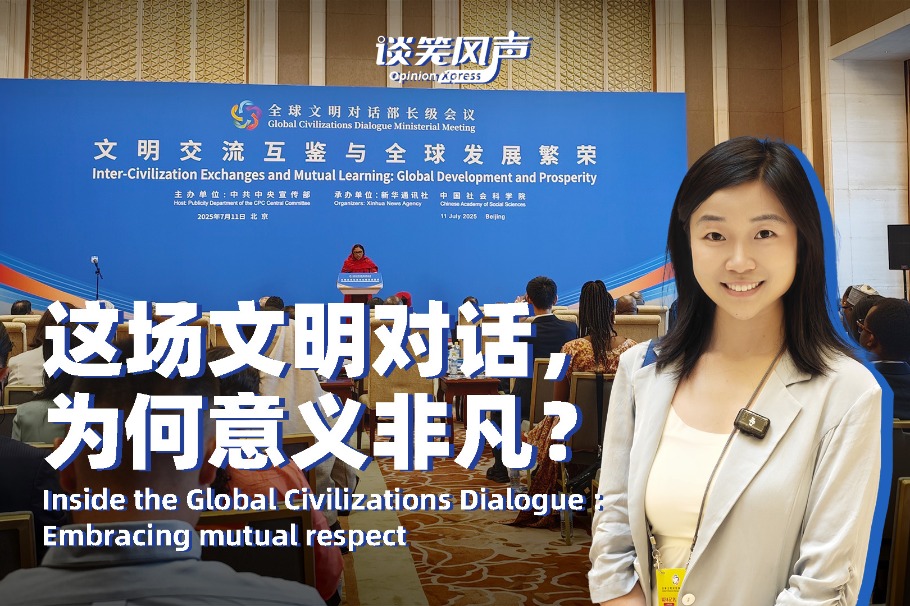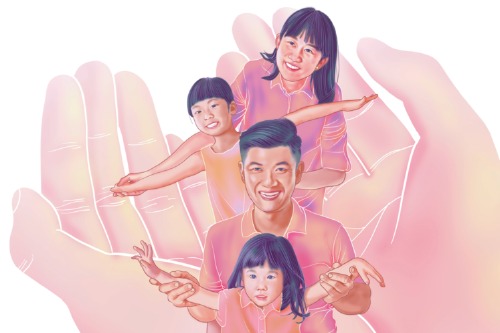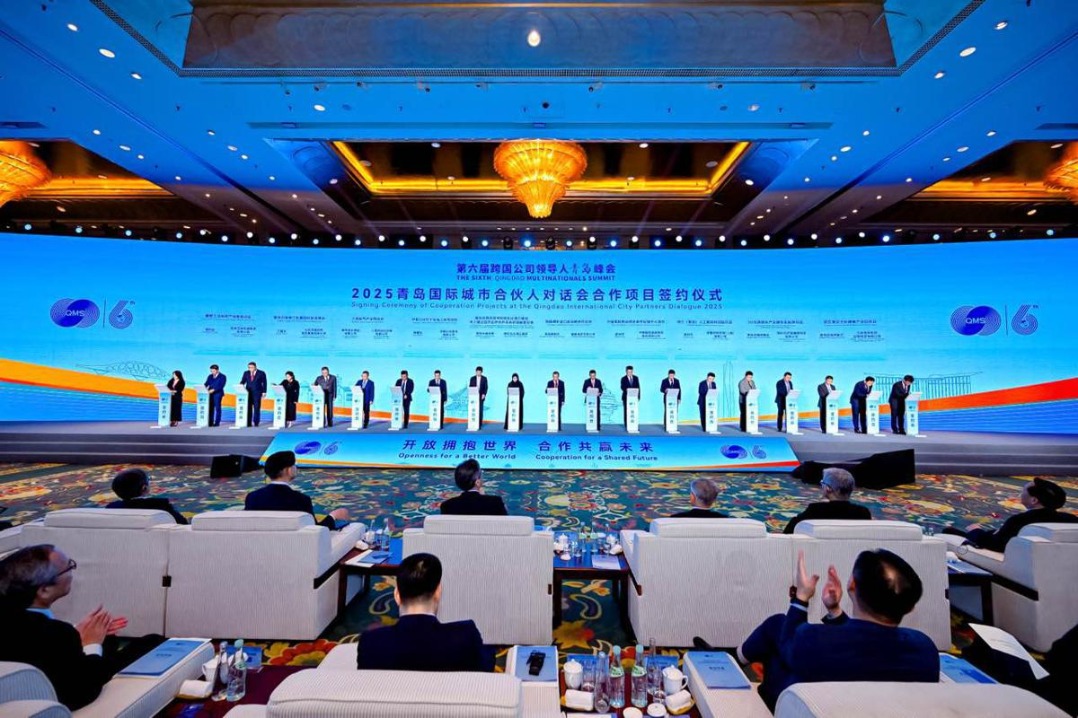ChatGPT can help enrich higher education


An artificial intelligence chatbot developed by OpenAI and launched in November 2022, ChatGPT hit the 1 million-user mark in five days and attracted 100 million monthly users in just two months, making it the fastest-growing consumer app in history.
Since ChatGPT can write emails, computer code, even academic papers and poems, and has passed a number of tests within seconds, including the US Bar exam, actuarial and medical exams, it is seen by many as a potentially disruptive innovation for different sectors, especially the higher education sector.
So is ChatGPT a boon or a bane?
The global response to ChatGPT varies greatly. Some universities have banned it. The New York City's Department of Education, for example, banned the chatbot from its public school devices and networks, with some people warning that it could prompt more students to cheat, especially in exams, while others regard it as a blessing rather than a curse. Andreas Schleicher, director of education and skills of the Organization of Economic Co-operation and Development, for instance, said he welcomes ChatGPT because "it gives people a chance" to concentrate less on tasks that technology can perform equally well.
According to a survey conducted by Study.com covering more than 100 educators and over 1,000 students, one-third (34 percent) of the educators said they believe ChatGPT should be banned in schools and universities, while the rest (66 percent) supported students having access to it. Incidentally, more than 89 percent of the students said they had sought help from ChatGPT to complete their homework or other assignments.
Since the perceived value and utility of ChatGPT outweigh the risks and many say it has more pros than cons, how can we better deal with the chatbot and its development?
ChatGPT and the accompanying AI revolution are likely to have a far-reaching impact on higher education, and discussions and debates are continuing on the implications they will have on, and the opportunities and challenges they will create.
The first worry is that ChatGPT could change the fundamental training structure of higher education. For example, Chinese students usually take 16 years to earn a bachelor's degree and more than 20 years to get a PhD in almost any field, be it academic or professional. The 16 to 20 years they spend to earn such degrees help them accumulate a storehouse of knowledge. But this system is at risk of being replaced with AI, giving rise to unimaginable problems.
The second concern is that ChatGPT may alter how we teach in schools and universities. For instance, a student depending on traditional textbooks to accumulate knowledge in a certain discipline will be at a great disadvantage against an AI chatbot which possesses interdisciplinary and in-depth knowledge.
In addition, the teacher-student-based teaching in university classes or the discussion-based model in some graduate-level courses may be less informative and attractive than the chatbot-based knowledge accumulation for the younger generation.
The third worry is that AI may change both the traditional and nontraditional research methods. AI's capacity to quickly accumulate knowledge will help it better perform the routine tasks performed by postgraduate students and scholars, such as reviewing a literary work, coding and programming, and normative scientific writing.
Academicians across the world are discussing whether and to what extent AI should be involved in or contribute to a scientific article. Such discussions will help human experts to pave the future path of higher education. Like the roles played by most technological advances and groundbreaking innovations in history, AI should be and will become a powerful tool for the development of higher education worldwide.
Therefore, embracing AI as early as possible is advisable, and higher education institutions should make preparations for including AI in their syllabus. They can start by offering related courses such as algorithms and training, because by understanding how it works, they can avoid slavishly following the answers ChatGPT gives and question it, so they could enhance students' knowledge, which is the actual purpose of higher education.
Besides, students with good knowledge of AI are more competitive when it comes to getting a good job, as an increasing number of jobs are being done by bots — some in cooperation with humans. AI-powered education technologies can be adopted to personalize the learning experience of each student based on his or her strengths and weaknesses. In addition, AI can free professors and lecturers from doing mundane tasks like preparing syllabuses so they can concentrate on teaching and interacting with students, making learning more enjoyable.
Moreover, better understanding and application of AI will make the education system much more transparent and thus help fight plagiarism and safeguard academic integrity.
As for professors, they should increase their interactions with students and inculcate in them critical thinking. Higher education helps students develop independent thinking in the pursuit of knowledge, and AI can assist in broadening the scope and reach of knowledge.
In particular, professors should encourage young people to avoid ambiguity, better manage interpersonal relationships, and form their own judgment on issues through systematic guidance and frequent interactions.
There is also a need to establish a comprehensive legal framework to regulate the application of AI technologies as soon as possible. The risks posed by the rise of AI applications, including plagiarism, misrepresentation and violation of privacy, may not disappear but will definitely decrease if appropriate regulations are implemented.
Also, there should be mechanism for settling disputes.
Since we cannot avoid ChatGPT and other AI-powered applications from entering the field of higher education, we should make collective efforts to ensure they have a positive impact on society and the future of education. But despite AI helping make learning much more interesting and enjoyable, humans need to work very hard to win the race with technology.
The views don't necessarily reflect those of China Daily.
Zhang Nan is the deputy director of graduate administration at the School of Applied Economics, Renmin University of China; and Wei Chu is a professor at and vice-dean of the School of Applied Economics, Renmin University of China.


































